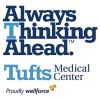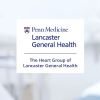How to Find the Right Heart Specialist for Heart Failure Diagnosis
- 1. Understanding Heart Failure and Its Symptoms
- 2. Why You Need a Heart Specialist for Heart Failure Diagnosis
- 3. Steps to Find the Right Heart Specialist
- 4. Key Qualifications to Look for in a Heart Specialist
- 5. My Personal Journey in Finding the Right Heart Specialist
- 6. Resources for Finding the Right Heart Specialist
1. Understanding Heart Failure and Its Symptoms
Heart failure, or congestive heart failure, is a condition where the heart is unable to pump blood effectively to meet the body’s needs. It’s a serious condition that can worsen over time, but with the right treatment and management, individuals can live full and active lives. Symptoms of heart failure may include shortness of breath, fatigue, swelling in the legs and abdomen, and rapid or irregular heartbeat.
When I first started experiencing some of these symptoms, I wasn’t sure what was going on. I felt tired more often, and I noticed swelling in my ankles, which I initially chalked up to something minor. However, after some time, I realized these were potential signs of heart failure. That’s when I knew I needed to find a heart specialist for a proper diagnosis and treatment plan.
2. Why You Need a Heart Specialist for Heart Failure Diagnosis
Heart failure is a complex condition that requires specialized knowledge for accurate diagnosis and effective treatment. While general practitioners are skilled in identifying common health issues, heart failure requires a cardiologist who is well-versed in diagnosing and treating cardiovascular diseases.
During my search for the right heart specialist, I quickly understood that heart failure is not something that can be managed with a one-size-fits-all approach. The diagnosis involves understanding the underlying cause of the condition—whether it’s due to high blood pressure, coronary artery disease, or another heart-related issue—and creating a personalized treatment plan. Without a specialist, it's easy to miss critical details that could affect your long-term heart health.
3. Steps to Find the Right Heart Specialist
Finding the right heart specialist is crucial for receiving effective care. From my experience, here are the steps I followed that helped me find the best cardiologist for my heart failure diagnosis:
- Start with a referral: Begin by asking your primary care physician for a referral. They can often recommend trusted cardiologists who specialize in heart failure.
- Do your research: Once you have a list of potential specialists, research their backgrounds. Look at their experience with heart failure, their board certifications, and their hospital affiliations.
- Check reviews and testimonials: Online reviews and testimonials from other patients can provide insight into the cardiologist’s bedside manner and effectiveness in treating heart failure.
- Consult with the specialist: Schedule a consultation to see if you feel comfortable with the cardiologist. During the visit, ask about their approach to heart failure treatment and ensure they take the time to explain your condition and treatment options in detail.
- Evaluate their communication style: It’s important to feel heard and understood. A heart failure diagnosis can be overwhelming, so choosing a cardiologist who communicates clearly and compassionately is key.
4. Key Qualifications to Look for in a Heart Specialist
When searching for a heart specialist, it’s important to ensure they have the right qualifications and experience. Here are the top factors I considered during my search:
- Board Certification: Look for a cardiologist who is board-certified in cardiology, and ideally, one who specializes in heart failure. Certification ensures the specialist has undergone rigorous training and is up-to-date with the latest treatments.
- Experience with Heart Failure: Not all cardiologists specialize in heart failure, so it’s essential to find a specialist with specific expertise in diagnosing and managing the condition.
- Hospital Affiliation: Choose a cardiologist who is affiliated with a reputable hospital or medical center known for its cardiac care. This gives you access to state-of-the-art technology and multidisciplinary care teams.
- Personalized Treatment Approach: Ensure that the specialist tailors treatment plans to each patient’s individual needs. A good heart failure specialist will customize their approach based on the underlying causes of your condition.
5. My Personal Journey in Finding the Right Heart Specialist
Finding the right heart specialist for my heart failure diagnosis wasn’t easy, but it was worth the effort. After experiencing worrying symptoms and a growing sense of unease, I knew I had to seek out the best care available. I started by researching cardiologists in my area and reading reviews from other patients. I also consulted my primary care doctor, who recommended a cardiologist specializing in heart failure at a renowned hospital.
The first consultation was reassuring. The cardiologist listened carefully to my concerns, conducted a series of tests, and explained my diagnosis in a way I could understand. We discussed my treatment options, including lifestyle changes, medications, and potential future procedures. Having a clear, personalized plan gave me the confidence to move forward with my treatment and make the necessary changes in my life.
6. Resources for Finding the Right Heart Specialist
Finding the right heart specialist can be daunting, but there are many resources to help guide you through the process. Websites like HeartCare Hub can connect you with top-rated heart specialists, and hospitals often offer referral services to ensure you’re matched with the right care. Additionally, national organizations like the American College of Cardiology (ACC) and the American Heart Association (AHA) provide directories of certified cardiologists who specialize in heart failure.
If you’re looking for a highly qualified heart specialist, I recommend visiting trusted websites or reaching out to healthcare networks like HeartCare Hub for recommendations. They can help you find the right doctor who specializes in heart failure diagnosis and treatment near you.




















